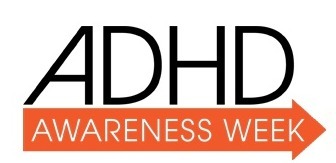By MARGARITA TARTAKOVSKY, MS
 Parenting a child with ADHD can be especially tough during the summer. “Kids with ADHD blossom when they have a structured schedule, and summertime is notorious for having a lack of scheduling,” according to Stephanie Sarkis, PhD, a psychotherapist and author of Making the Grade with ADD: A Student’s Guide to Succeeding in College with Attention Deficit Disorder.
Parenting a child with ADHD can be especially tough during the summer. “Kids with ADHD blossom when they have a structured schedule, and summertime is notorious for having a lack of scheduling,” according to Stephanie Sarkis, PhD, a psychotherapist and author of Making the Grade with ADD: A Student’s Guide to Succeeding in College with Attention Deficit Disorder.
Psychotherapist and ADHD expert Terry Matlen, ACSW, agreed. Because most parents can’t mimic the tight structure of school, kids often get bored — and may get into trouble, she said. That’s because when kids with ADHD get bored, they seek out stimuli, which can be anything from picking fights with their families to playing with fire, she said.
Some parents discontinue their child’s medication during the summer, which poses another challenge, said Matlen, also author of Survival Tips for Women with ADHD. “That can create a situation where the child has a hard time with self-control, mood regulation [and] social behaviors.”
But while the summer can be challenging, you can absolutely overcome these obstacles and enjoy a fun break. Below, Sarkis and Matlen offer their excellent suggestions.
1. Create Structure
Again, structure keeps your child focused. You can create structure by engaging your child in activities at the same time each day or meeting on the same day each week.
Because ADHD runs in families, one of you may have ADHD as well, making it harder to establish structure. Enlist the help of your non-ADHD spouse to assist with planning out the day.
2. Incorporate Physical Activities
Physical activities are especially helpful for kids who are impulsive and hyperactive. It helps them direct their energies in acceptable, healthy ways. If your child is clumsy, try non-competitive activities such as swimming, running and biking. (Some kids with ADHD have fine and gross motor skills that may not be on par with others their age.)
3. Start a Rotating Playgroup
Sarkis suggested that parents set up a weekly playgroup with other parents around their neighborhood. You can meet once a week at a different home for a few hours. This is an inexpensive way of providing structure to a child, and it also giving parents time off in the process.
4. Consider Camps
According to Matlen, young kids do great in day camps that offer outdoor, structured activities, while overnight camps with physical outlets are ideal for older kids. If your child has a specific interest, such as art, horses or computers, specialized camps are another excellent option, she said.
Both Sarkis and Matlen also suggested camps for kids with ADHD. To find a camp, contact your local CHADD group or post on an ADHD forum, Sarkis said. “Look in your local paper, and ask your pediatrician, teacher, or school counselor,” she added.
(Also, this article has several helpful suggestions on finding a good camp.)
5. Try Local Facilities
If camp isn’t feasible, try a local swim club or the Y, Matlen said. These facilities offer an array of fun activities at an affordable cost.
6. Get Creative
Parents can also set up a badminton set in the backyard, purchase a trampoline [or] set up an obstacle course with tunnels and objects to hop over.
7. Engage Them in Nature
For instance, show your kids how to garden. Kids can get dirty while learning about nature. Also, setting up bird feeders and tending to the food gives kids the opportunity to learn how to care for living creatures.
8. Visit the Library
Kids with the inattentive type of ADHD often prefer quiet and calm activities. During the summer, many libraries offer either free or low-cost programs for kids.
9. Check out the Arts
Kids who prefer quieter activities also might enjoy attending concerts, plays and art classes.
10. Encourage Older Kids to Work
If your kids are older, talk to them about the many ways they can earn money, such as dog walking, pet sitting or even having a lemonade stand. This improves math skills and promotes a healthy independence and solid self-esteem.
11. Let Your Child Have a Say
Ask your child what they’d like to do this summer, including the new skills they’d like to learn, such as playing the guitar, camping or cooking. Once he sees that he has input and that his opinion is valued, the parent has a much better chance at getting him to try new things.
If your child already has a certain skill, ask if they’d be willing to teach that skill to a younger child. According to Matlen, this can “do wonders for his self-esteem, which for many kids, can get pretty battered during the school year.”
12. Consult your Doctor about Medication
Some parents take their kids off medication during the summer since there’s no schoolwork. However, it’s important to thoroughly discuss this decision with your child’s doctor, Matlen said. She’s seen kids significantly struggle without their medication. For instance, because of their hyperactivity and impulsivity, they may lose friends, she said. And their behaviors might cause tremendous stress on the family.
In addition to creating structure and engaging your child in a variety of enjoyable activities, don’t forget to find some alone time for yourself, Sarkis added.
Source: http://psychcentral.com/blog/archives/2012/05/14/12-tips-to-navigate-summertime-when-your-child-has-adhd/H
Like this:
Like Loading...
 Young boys who discontinue treatment for attention deficit hyperactivity disorder (ADHD) are featured in a new study that many experts say highlights the importance of proper and continued treatment.
Young boys who discontinue treatment for attention deficit hyperactivity disorder (ADHD) are featured in a new study that many experts say highlights the importance of proper and continued treatment.




 By L. Alan Sroufe
By L. Alan Sroufe



